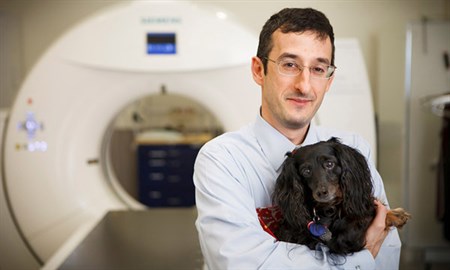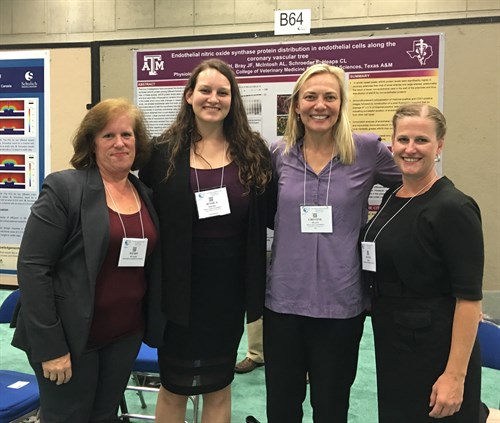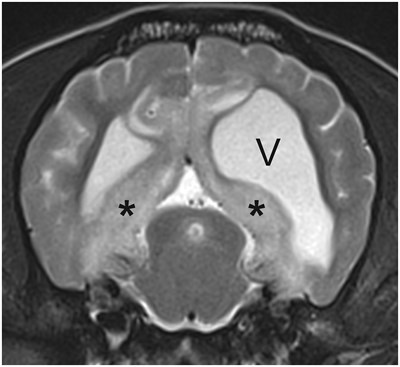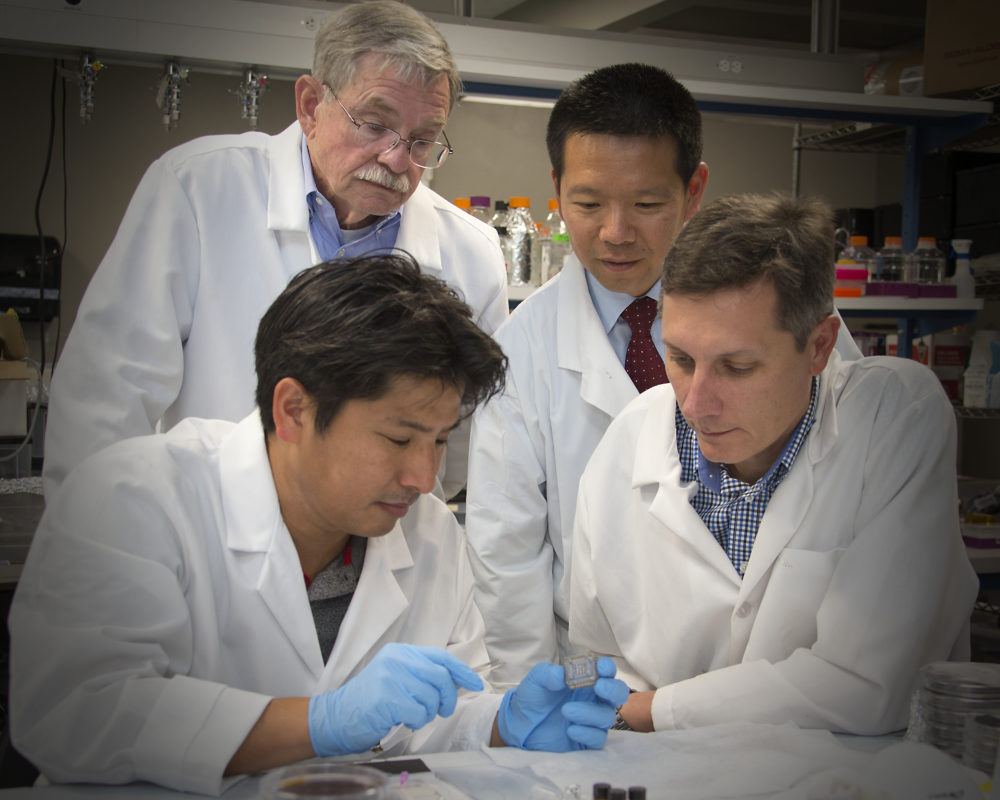Spinal Cord Study Finds Drug Can Change Bladder Function in Dogs, Possibly Humans
Texas A&M University and University of Texas at Austin researchers have discovered that in dogs with naturally occurring spinal cord injury, a drug that blocks matrix metalloproteinases (MMPs) allows the bladder to stretch more easily as it fills. Such a change will likely reduce the discomfort that is commonly associated with the inability to void […]
Jessica Israel–A Pioneer in Veterinary Medicine and the Deaf Community
Jessica Israel, a graduate student pursuing a non-thesis master’s in biomedical sciences at the Texas A&M College of Veterinary Medicine & Biomedical Sciences (CVM), is trekking her own path to a veterinary medicine degree by first immersing herself in research, an unconventional path for most non-thesis graduate students. Through her research experience, she hopes to […]
A Treasure Trove of Research: The Tambopata Macaw Project
Deep in the Peruvian rainforest, 20 kilometers from the nearest road, stands the headquarters of the Tambopata Macaw Project, a combination ecotourism lodge and scientific research station. Waking up well before sunrise, teams of dedicated parrot researchers make daily trips into the jungle, braving intense humidity, thick forests, and unpredictable rivers to observe macaws in […]
Texas A&M Professor Andersson’s Study Has Significant Implications for Atlantic Herring
COLLEGE STATION, TX- A study published in PNAS, led by Leif Andersson, professor at Uppsala University, the Swedish University of Agricultural Sciences, and Texas A&M; University, has significant implications for how climate change may affect the reproduction of herring and other marine fishes. Scientists in Sweden and Canada have studied the genetic basis of reproduction […]
Texas A&M Professor Leads Study on Domestic Animals as Models for Evolutionary Processes
COLLEGE STATION, TX-In a new study published in PLoS Genetics, an international team of researchers report that two independent mutations are required to explain the development of the sex-linked barring pattern in chickens. Both mutations affect the function of CDKN2A, a tumor suppressor gene associated with melanoma in humans. Leif Andersson, Uppsala University, Swedish University […]
Manuscript about Brain Inflammation in Dogs Published in PLOS ONE
Dr. Nick Jeffery, professor at the Texas A&M College of Veterinary Medicine & Biomedical Sciences (CVM), was recently accepted to publish his manuscript on brain inflammation in dogs in PLOS ONE, an open access journal that publishes scientific research. Jeffery’s paper, “The Association of Specific Constituents of the Fecal Microbiota with Immune-Mediated Brain Disease in […]
Student Researchers Tackle Societal Issues
What program combined public health, environmental health, and animal health to answer two research societal needs? Two Texas A&M students, Clara Bush (veterinary student), and Jarius Pulczinski (graduate student), participated in the thirteen-week on- campus summer Veterinary Medical Scientist Research Training Program (VMSRTP)(https://vetmed.tamu.edu/vmsrtp). Their scholarships were sponsored by the Texas A&M One Health Initiative. Each […]
Texas A&M, Johns Hopkins receive $5.3 million NIH grant to study how lead exposure affects humans
When researchers try to uncover the cause of disease, they commonly start with two questions: Did a quirk in the patient’s genes open the door to illness, or did exposure to environmental factors play havoc with the patient’s health? Very often, both genes and the environment are at least partly to blame, and to provide […]
Texas A&M Researchers Awarded Grant to Establish “Tissue Chip” Center
Testing drug safety and efficacy is challenging, expensive, and time consuming. Recent advancements have given way to what is known as “tissue chips.” These tiny bioengineered systems mimic the larger, complex organs and tissues of the human body. The chips may improve our ability to ensure that a drug is safe before clinical trials begin […]
Texas A&M Professor a Lead Investigator in the Largest Prospective Veterinary Cardiology Study Carried Out to Date
COLLEGE STATION, Texas – Mitral valve disease (MVD) accounts for approximately 75 percent of all canine heart disease. However, a recent global clinical trial led by a Texas A&M University veterinarian was published in the Journal of Veterinary Internal Medicine (Sept 2016) and shows that early treatment can slow progression of the disease, prolonging overall […]












